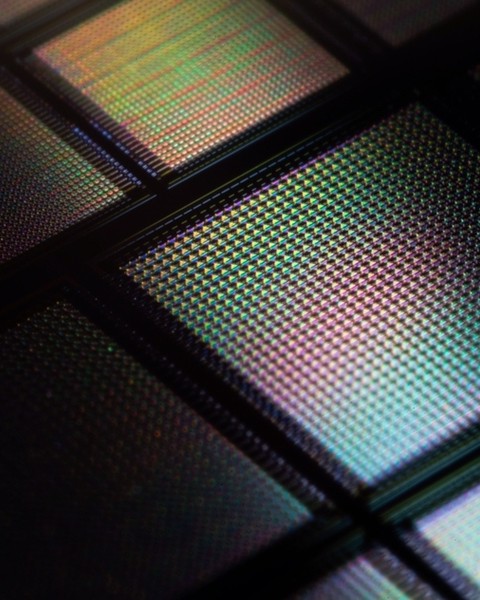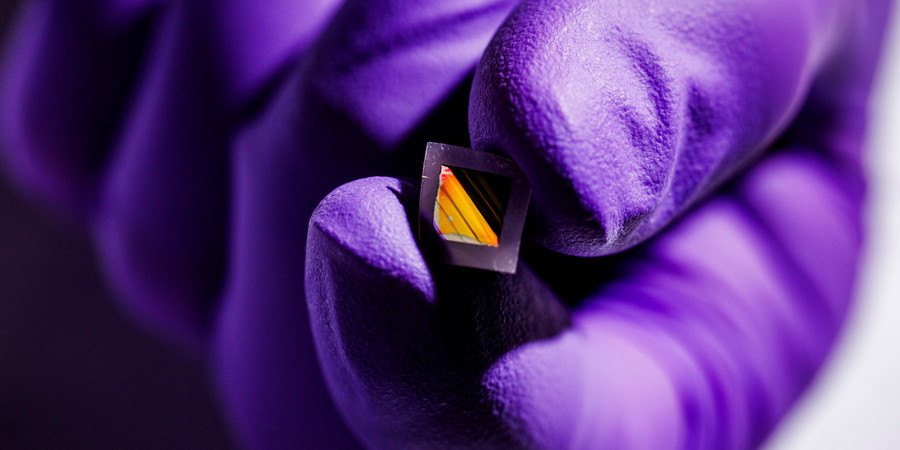Jennifer Chu | MIT News Office
MIT engineers have designed a “brain-on-a-chip,” smaller than a piece of confetti, that is made from tens of thousands of artificial brain synapses known as memristors — silicon-based components that mimic the information-transmitting synapses in the human brain. The researchers borrowed from principles of metallurgy to fabricate each memristor from alloys of silver and copper, along with silicon. When they ran the chip through several visual tasks, the chip was able to “remember” stored images and reproduce them many times over, in versions that were crisper and cleaner compared with existing memristor designs made with unalloyed elements.
The work has been highlighted in Nature Nanotechnology, Popular mechanics, and TechCrunch.
Complete article from MIT News.
Explore
III-Nitride Ferroelectrics for Integrated Low-Power and Extreme-Environment Memory
Monday, May 5, 2025 | 4:00 - 5:00pm ET
Hybrid
Zoom & MIT Campus
New Electronic “skin” could Enable Lightweight Night-vision Glasses
Jennifer Chu | MIT News
MIT engineers developed ultrathin electronic films that sense heat and other signals, and could reduce the bulk of conventional goggles and scopes.
MIT Engineers Print Synthetic “Metamaterials” that are Both Strong and Stretchy
Jennifer Chu | MIT News
A new method could enable stretchable ceramics, glass, and metals, for tear-proof textiles or stretchy semiconductors.




